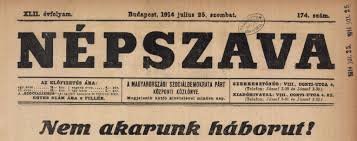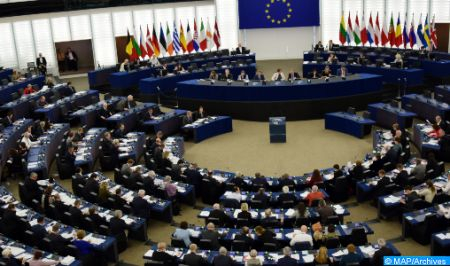 Hungarian paper Népszava has recently published a story on Morocco, hailing the stability of the kingdom, that it described as “one of the most open countries and the most moderate of the region, the most tolerant of other religions and most welcoming to tourists … “.
Hungarian paper Népszava has recently published a story on Morocco, hailing the stability of the kingdom, that it described as “one of the most open countries and the most moderate of the region, the most tolerant of other religions and most welcoming to tourists … “.
The Hungarian left-wing paper, founded in 1877, noted Morocco’s “stabilizing role” in the region, and hailed the substantial assistance provided by Moroccan security services to their European counterparts to counter the terrorist threat.
“Morocco is an essential ally of the United States and Europe in the fight against terrorism,” wrote Népszava, which was the mouthpiece of the Social Democratic Party of Hungary (MSZDP). It insisted on the substantial contribution of Moroccan security services in the fight against terror and their assistance to their European counterparts, noting that several terrorist plots have been foiled by French, Spanish and German services, thanks to information provided by their Moroccan counterparts.
The publication mentioned in this connection the arrest last Saturday in Barcelona of a Daesh veteran who served in the Syrian-Iraqi zone as an example of the effective assistance provided by Moroccan services to their Spanish counterparts.
It also recalled that German services have been tipped recently by their Moroccan counterparts on a bombing plot against Stuttgart airport.
Népszava also touched on the murder of the two Scandinavian women on December 17 in Imlil, in the Atlas Mountains.
he two hikers, 28-year-old Maren Ueland from Norway and 24-year-old Louisa Vesterager Jespêrsen from Denmark, were found dead in the Moroccan mountains. No group has claimed responsibility for the killing, however, Moroccan authorities, along with the Norwegian National Criminal Investigation Service (NCIS), reported that the murder has been linked to radical Islamists who swore allegiance to the terror ISIS group.
“Despite the murder of two Scandinavian tourists in Imlil, Morocco remains a safe and stable country”, wrote the Hungarian left-wing daily, adding that the crime did not prompt Budapest to “change the classification of Morocco.” The North African country “is still evaluated as safe,” the daily said.
Moreover, the countries of origin of Louisa Vesterager Jespêrsen (Denmark) and Maren Ueland (Norway) “have warned that after the killings, it was better for anyone wishing to make such a hike to recruit a local guide.”
Several other media reports suggested that the two Scandinavian tourists’ murder is unlikely to alter the behavior of Norway, Denmark or other EU states towards Morocco.


